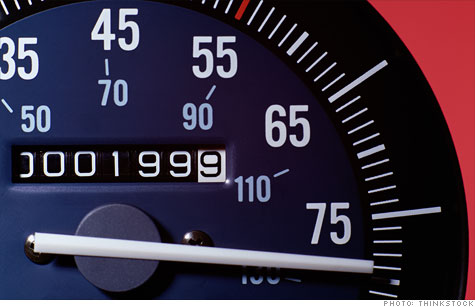
If the mileage rate you pay is no higher than the advisory fuel rates for the engine size and fuel type of the company car, there will be no taxable profit and no Class 1A National Insurance to pay. The attached document is classified by HMRC as guidance and.
Road fuel prices for week commencing. See the rates for this year and earlier years plus an explanation of how the rates can be used. Company car and car fuel calculator - company cars.
What is the car mileage allowance? You can calculate car and car fuel benefits by. Can I claim mileage on my business car? How do you claim mileage on taxes?
Can You claim fuel expenses for business mileage? Currently, private mileage for cars and vans is per mile, up to 10miles, and 25p per mile, over 10miles.
The mileage for motorcycles, bikes, and other vehicles varies, again refer to the HMRC advisory fuel rates. Example Three – claiming mileage on a company car. Helen £for business miles. To work how much you can reclaim, add up your business mileage for that tax year, and multiply it by the approved mileage rates.
In contrast to if you’re using a car company, the engine size is irrelevant. If you’re paid a lower mileage rate, you can claim tax relief on the difference. For example, if the company pays 35p per mile up to. If you are provided with a company car and your company pays for all fuel, you will have to pay fuel benefit tax.
The fuel benefit is based on the cash equivalent of the benefit each tax year. These rates can range from per cent if the car can cover more than 1miles on a full charge (none fall into this category so far), to per cent if the car offers less than miles of zero.
Mileage Allowance Payments. Use HMRC’s MAPs working sheet if you need help. The company car benefit tax charge does not cover fuel provided for a company vehicle.
The guidance given by HMRC for fuel-only mileage rates for company cars confirm that employers do not have to use advisory fuel rate. The mileage rates apply only where a company must repay an employee for business travel in a company car, or where an employee is required to repay the company for personal travel in a company car.
HMRC’s business mileage rates don’t apply to company cars. Basically, you can claim over 45p tax-free as a business mileage allowance if you use your own car for a business journey.

This means you can’t claim a. Road tax is one of the key costs you’ll still need to cover with a company car. Since the vehicle you drive can make a big difference to car tax rates, typically you will have a more restricted choice of cars under a company car scheme.
If your company car package includes fuel, you will also need to pay Car Fuel Benefit each month. If you have been either claiming more for business mileage, or repaying less for private mileage than the HMRC official rates, HMRC’s view is that fuel for private travel is provided by the employer.
Tripcatcher also allows bespoke rates for both personal and company vehicles. The car driver is therefore taxed on the fuel benefit scale charge, unless the car user meets the cost of all fuel used privately. There is, therefore, a risk that company car drivers who might. A mileage allowance covers the costs of fuel and wear and tear for business journeys.

Employees should not claim a full mileage allowance if they use a company car. The rates only apply to employees using a company car. HMRC calls this rate the Advisory Electricity Rate (AER). Calculate your company car ’s P11D value – HMRC has a handy calculator that will help.
Let’s say it came out at £3000. Multiply this by the company car tax rate based on your car ’s COemissions (use the table below). The other alternative is that the company continues to pay for all of his fuel, but the company charges the employee for all of his private mileage - again using the advisory fuel rates.
In either case, the fuel benefit could be reduced down to nil if you can meet all of the requirements. If the employee has a company car but no fuel car then HMRC publish another table for advisory fuel rates that is reviewed quarterly.
Only the excess above these rates needs to be reported on the P11D form. Please note that drivers of company cars cannot claim.
Annual mileage up to 5miles (standard rate ) Annual mileage over 3. All eligible miles travelled (see paragraph 1and Table 8) Car (all types of fuel) pence per mile: pence per mile : Motor cycle : pence per mile: Pedal cycle : pence per mile: Passenger allowance : pence per mile: Reserve rate : 28.
No comments:
Post a Comment
Note: only a member of this blog may post a comment.